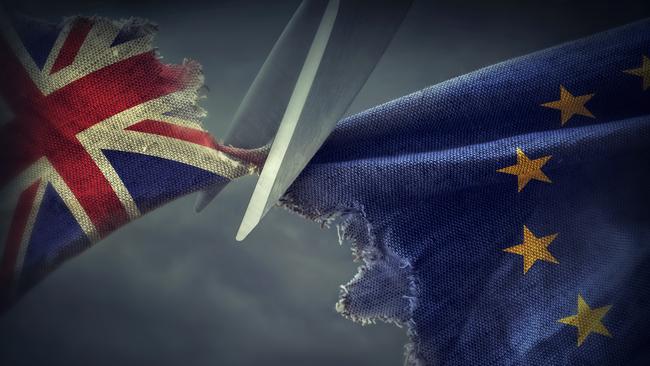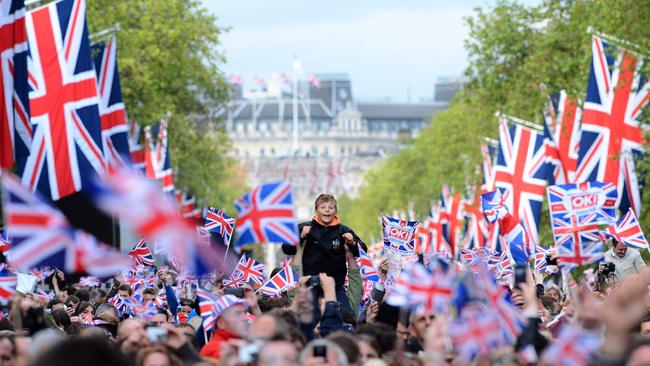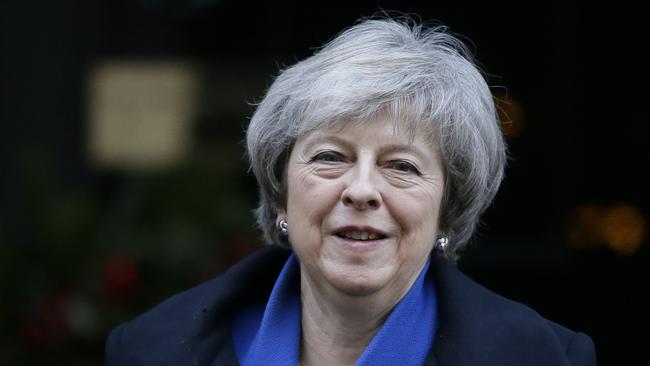
Theresa May’s hopeless Brexit deal with the EU, which would leave the country in thrall to Brussels’ rules without a say, is scheduled to face the House of Commons after January 14. Its likely demise paves the way for Britain “crashing out” of the EU by the end of March without a deal. Let’s hope so.
You too must be sick of the fearmongering by liberal economic elites about the supposed dire consequences of a no-deal Brexit. Britain survived the Armada, Napoleon and Hitler, but leaving a dubiously beneficial supranational bureaucracy that it joined only in 1973 will apparently cause the biggest recession in a century.
Never mind that the British Treasury’s forecasts before the 2016 referendum have proved gobsmackingly wrong. They claimed a Brexit vote would sap Britain’s GDP by 3.6 per cent and lift unemployment by about 500,000. In fact economic growth has accelerated, and the unemployment rate has fallen to 4.1 per cent, its lowest since the 1970s.
Not to be deterred, the Bank of England is back with even more terrifying predictions, suggesting house prices would plunge 30 per cent in the biggest recession since the 30s as a result of a “disorderly” Brexit. The thousands of refugees in Calais, itching to get to Britain rather than stay in the EU, aren’t paying much attention.
Those unhappy with the result of the 2016 Brexit referendum — overwhelmingly high earners in the media, finance, universities and politics — need to get a grip. Britain is a rich, influential country, the fifth-biggest economy in the world. That won’t change, whatever happens after March 29.
Even if leaving the EU harms the economy a little, the British people have spoken. Democracy trumps technocracy, or at least it should. If leaving the EU ultimately shaves British GDP growth by a little in the future, who cares? If it means a few checks on the Northern Irish border until new arrangements can be sorted out, so be it.
None of these scenarios is worth thwarting the British voters’ verdict: 52 per cent voted to leave.

The EU has become government of the elites, by the elites, for the elites. What started as a few sensible intergovernmental agreements in the 1950s has morphed into a costly monster with little legitimacy. Voter turnout at elections for the European parliament has fallen from 66 per cent in the late 70s to 43 per cent in 2014. In Britain, turnout was 35 per cent, suggesting the British in particular care little for an institution they are paying about £9 billion ($16bn) a year.
Free movement of people in the EU has improved life for high-income Britons, who can flit around the continent with ease. But what about everyone else? Last June, real average weekly earnings in Britain (£490 a week, according to the Office of National Statistics) were still lower than 12 years ago. And that’s the average, which is dragged up by the high-paid in the bailed-out financial services sector. No wonder the figures for median wage growth are hard to find on the government website.
In the Bank of England’s tendentious analysis, none of the costs of staying is considered.
It might be a nice idea, but the EU is failing. “The Union remains mired in deep existential crisis, and its future is very much in doubt,” writes Dani Rodrik, an eminent Harvard trade economist, in his 2017 book Straight Talk on Trade. “The symptoms are everywhere: Brexit, crushing levels of youth unemployment in Greece and Spain, debt and stagnation in Italy, the rise of populist movements, and the backlash against immigrants and the euro.” Rodrik would now have to add a France in turmoil, racked by the most damaging and widespread riots since the 1960s, aimed at a president strongly associated with the EU.
The notion the EU is popular in member countries other than Britain is also debatable. In 2005, almost 55 per cent of the French rejected a constitutional treaty that would have bound France more tightly to Brussels. The French government hasn’t dared put any similar questions since.

“Historians will one day look back and think it a curious folly that just as the Soviet Union was forced to recognise reality by dispersing power to its separate states … some people in Europe were trying to create a new artificial state by taking powers from national states and concentrating them at the centre,” said Margaret Thatcher in 1994, in remarks that look increasingly prescient.
Unfettered access to the EU’s market isn’t everything. And the share of British exports going there has been shrinking anyway, from 55 per cent in 2006 to 44 per in 2017, according to the British parliamentary library. That’s not much more than the 33 per cent of Australia’s exports China buys.
Outside the EU, Britain would have freedom to negotiate its own deals with faster-growing economies, a benefit the Bank of England and the British Treasury have played down.
As for the EU, under World Trade Organisation rules it could not discriminate against Britain. It could impose tariffs on British goods and services, but by not more than it does on those from other nations, such as the US.
Canada has negotiated a deal with the EU better than WTO rules. Britain could do the same. In any case, it’s unlikely the European firms that own swathes of the British car industry would want their investments undermined. Cars are the single biggest export from Britain to Europe.
Britain famously repealed its Corn Laws in 1846, slashing the price of food for ordinary Britons, and thrived. Perhaps it should do the same again, slashing prices of goods and services. That would have a much better chance of lifting real wages than taxing them to prop up a Brussels bureaucracy.




To join the conversation, please log in. Don't have an account? Register
Join the conversation, you are commenting as Logout